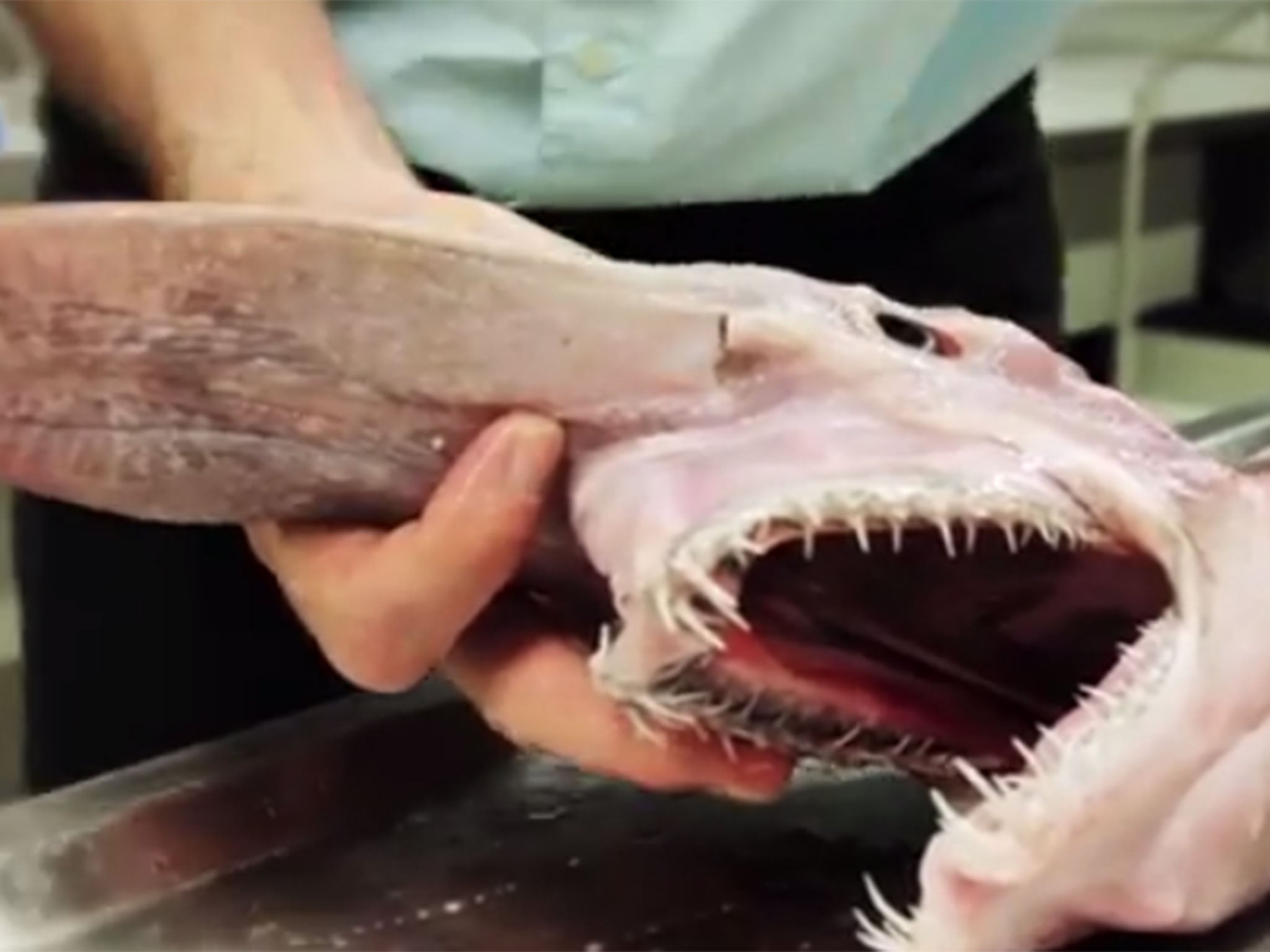Video: Extremely rare and strange-looking goblin shark dissected by researchers in Australia
Could this be the ugliest sea creature ever discovered?

Your support helps us to tell the story
From reproductive rights to climate change to Big Tech, The Independent is on the ground when the story is developing. Whether it's investigating the financials of Elon Musk's pro-Trump PAC or producing our latest documentary, 'The A Word', which shines a light on the American women fighting for reproductive rights, we know how important it is to parse out the facts from the messaging.
At such a critical moment in US history, we need reporters on the ground. Your donation allows us to keep sending journalists to speak to both sides of the story.
The Independent is trusted by Americans across the entire political spectrum. And unlike many other quality news outlets, we choose not to lock Americans out of our reporting and analysis with paywalls. We believe quality journalism should be available to everyone, paid for by those who can afford it.
Your support makes all the difference.This video shows the dissection of the rarest and most distinctive looking sharks ever to have been discovered.
Dubbed the “alien of the deep”, the footage shows Mark McGrouther, the Head of Fish Collection at the Australian Museum, studying the dead goblin shark, which was caught by a commercial fisherman off the coast of Eden, New South Wales in January.
Little is known about the goblin shark and the latest discover is only the fourth ever to be analysed by scientists at the museum.
What is known about these sharks is that they live deep down in the ocean depths, up to about 900 metres, and are rarely caught by humans.
Watch More: Great White Shark Vs Great White Shark
Three live shark pups cut from dead mother's stomach
Its distinctive long snout is covered in pores that can pick up electric pulses from crabs, squids and other potential prey.
The shark goblin shark, scientific name "Mitsukurina owstoni", is known to have lived on the planet for millions of years, with fossils for the animals being discovered that dated as far back as 125 million years ago.
The specimen caught in January is believed to be a male and measured 4ft 13in in length.
The shark will now be kept at the museum, with further research to be carried out in the future.
Join our commenting forum
Join thought-provoking conversations, follow other Independent readers and see their replies
Comments